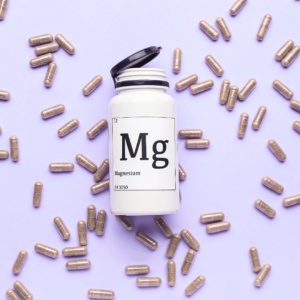When you look at PPD and sleep, and how sleep quality may be affected – it’s the chicken or the egg. Is poor sleep contributing to PPD, or is PPD contributing to poor sleep?
Overall, the postpartum period is such a delicate period where sleep, nutrition, your lifestyle, and your training is completely uprooted. Unfortunately many women feel the need to resume training to “lose baby weight”; but that training is actually too great of a stressor on their body. We have to remember that stress isn’t just “I hate my job”, “I almost had a car accident”; stress is anything that disrupts our homeostasis. Stubbing your toe is a stressor! So when we look at PPD and how we can be contributing to the stress load through over training, restricting calories, and then breastfeeding on top of it; all of this will contribute to poor sleep and worse PPD symptoms.
B6 is a critical nutrient needed for mood stabilisation; it converts tryptophan to serotonin, and melatonin; it’s necessary for the conversion of tryptophan to both niacin and serotonin. B6 requirements almost double for women when they’re lactating, and this vitamin being depleted has huge effects on mood and sleep quality. Research also shows that inflammation increases the uptake of P5P (the active form of B6) into the tissues markedly reducing available plasma and liver levels.





